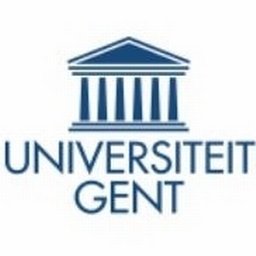Description
We are seeking a motivated new PhD candidate or Postdoctoral Fellow who wants to join an exciting collaborative research program within the VIB-Center for Inflammation Research between the Guilliams and Saelens teams.
Tissues, both in homeostasis and in disease, are built as networks of interacting cells that maintain or manipulate each other’s identity. In the liver, we have identified a 4-cell module of hepatocytes, stellate cells, sinusoidal endothelial cells and Kupffer cells (Guilliams et al. Cell 2022, Guilliams et al. Immunity 2022). Perturbing one part of the module leads to a change in identity in all other cells, often resulting in molecular states that are eerily similar to those observed in diseases. How these intercellular cascades are exactly wired is poorly understood.
This research project has a dual focus. On the one hand, you will be involved in analysis of spatial, single-cell and multi-omics data to efficiently characterize the different molecular layers. This will be done in healthy states, genetically perturbed states, and during liver regeneration. On the other hand, you will develop algorithms to disentangle direct intercellular signals from those that are induced. The multi-omics spatial and single-cell modalities from perturbed and regenerating livers form the ideal data stack to pioneer such methods. Predictions coming from these methods will be directly validated using CRISPR-based in vivo perturbational approaches developed within the lab.
You will be embedded both within an experimental and computational team, providing a unique atmosphere where there is expertise to dig deep into computational modelling, while working closely together with the experimental side of the lab. This interdisciplinary atmosphere has been a main catalyst for many past successes: https://europepmc.org/article/MED/35021063, https://europepmc.org/article/MED/31819264, https://europepmc.org/article/MED/31561945, https://europepmc.org/article/MED/39747019, https://europepmc.org/article/PPR/PPR800886.
Profile
- Master’s in bioinformatics, biotechnology, bioengineering, biomedicine, software engineering, data science, physics, or related fields
- Interest in multi-omics data analysis and algorithm development
- Programming experience in Python
- Excellent communication skills and fluency in English
- Collaborative personality with attention for detail
- Experience in multi-omics data analysis
- Embedding within a computational team, with extensive experience in computational biology and machine learning.
- Embedding within an experimental team, with direct availability of experimental validation for machine learning models. You are encouraged to follow along with experimental procedures.
- Competitive salary and full benefits.
- Access to state-of-the-art computing infrastructure.
- Motivation letter of 1-1.5 pages.
- Curriculum vitae
- University degree certificates
Want to apply?
Sent your application through the online tool at
For more information, you are welcome to contact Prof. Wouter Saelens ([email protected]) or Prof. Martin Guilliams ([email protected])
Diversity & Inclusion
We are committed to creating and sustaining an inclusive, respectful, and collaborative environment where everyone can thrive. We value diversity in all its forms - including but not limited to gender identity, ethnicity, nationality, disability, sexual orientation, age, socio-economic background, and family situation. We welcome applications from individuals of all backgrounds and identities, and we are dedicated to providing equal opportunities and actively promoting a culture of belonging.
Feel free to let us know in your cover letter if there are any past or current circumstances that can impact your application.
By embracing the unique perspectives and experiences of our team members, we aim to foster innovation and advance excellence in research. We believe that a diverse and inclusive workplace is essential for scientific creativity, effective collaboration, and impactful discovery.

